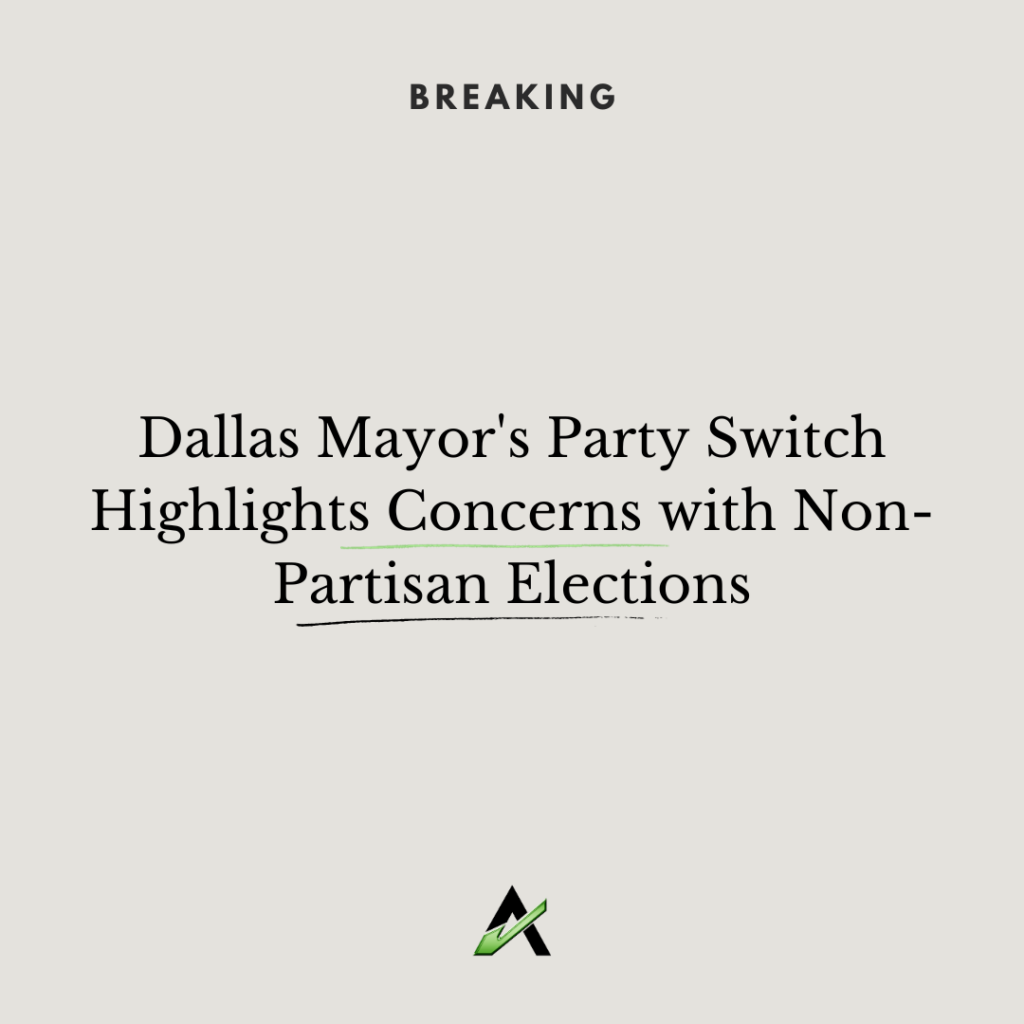When Eric Johnson announced he was switching parties last week, there was an immediate uproar and demands for a recall election from Democrats.
Johnson, now the mayor of Dallas, is a former Democrat member of the Texas Legislature, and his party switch has enraged his former party pals.
Maybe they’re right to be upset, but currently, in Texas, local elections are nonpartisan, and so such a party switch is news but also not technically relevant. While this nonpartisan status is helpful for local politicians who prefer to eschew labels, it makes life more difficult for voters and limits accountability.
Parity identification helps voters place candidates for office efficiently on the political spectrum. With a core set of values to associate with a candidate based on party affiliation, voters can cast their ballots with more information. In nonpartisan elections voters may struggle to discern a candidate’s real stance on crucial issues, resulting in uninformed choices.
In Johnson’s case, the fact that he’d formerly been elected as a Democrat to a state-level partisan office was useful information for voters who potentially chose him for that reason. For other candidates voters may use their primary election voting history, but this isn’t always reliable. Texas has open primaries and countless cases of citizens voting in their opposing party’s primary. Also, many local candidates don’t have a primary voting history at all.
Unifying our election dates will also increase voter turnout and decrease voter burnout. With primary elections in March, local elections in May, general elections in November and the potential for runoff elections, voters could be asked to go to the polls five times in one year. If there is a runoff for the primary election, it can create chaos for election offices and voters because mail-in ballots for the runoff and the local election are circulating at the same time.
Moving local elections to the primary system also eliminates vote splitting sabotage by opposing parties. For example, a conservative candidate is challenging a liberal candidate for city council and the liberals in the city covertly recruit a third candidate, a more center right candidate, to split what would be the Republican vote. This then results in a victory for the liberal candidate and this tactic is used over and over again. The primary system would eliminate this. Someone could still run as an independent candidate, but voters would be less likely to be manipulated.
Not only does having partisan elections increase transparency for voters, but it also allows voters to hold their elected officials accountable.
In non-partisan elections, candidates may not be held accountable to a set of party principles or values. This lack of accountability can result in candidates who are less committed to clear policy positions, making it challenging for voters to gauge their actions against principled guidelines.
Partisan elections allow candidates to openly advocate for their party’s principles and voters to make choices that align with their own values. City Councils and School Boards are becoming more and more partisan as our culture is forcing the parties to become more and more divided. Basic principles like keeping boys out of girls’ locker rooms and keeping pornography out of school libraries used to be bipartisan, but that is no longer the case.
Texas needs to move to partisan local elections. This policy change, in conjunction with a unified election date and closed primaries, will ensure that the will of voters is better reflected in the officials who are eventually elected.
It’s essential that voters have clarity about the political ideologies of those in local governance to build trust back into the system.

